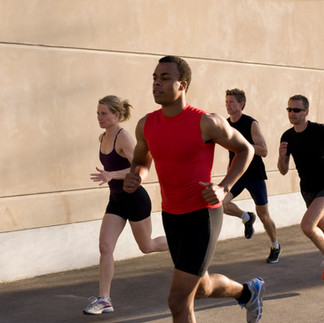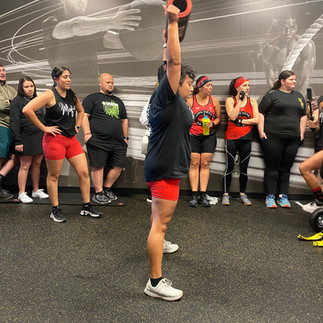The Role of Diet in Recovery/Rehab & Performance Optimization | Woodstock Physical Therapy Nutrition
- blakecarter1025
- Apr 4
- 2 min read
At The Impact Initiative Physical Therapy & Performance, we emphasize a holistic approach to recovery and performance. While proper training and rehabilitation are essential, nutrition plays a crucial role in how well your body heals, adapts, and ultimately performs. Whether you're a runner logging high mileage, a CrossFitter tackling grueling WODs, or a hybrid athlete balancing strength and endurance, your diet can make or break your progress.
Fueling Recovery & Rehab
When recovering from an injury, nutritional support is just as vital as physical therapy. Your body requires the right nutrients to repair tissue, reduce inflammation, and restore strength. Here’s some key things to consider:
Protein for Tissue Repair: Aim for high-quality protein sources like lean meats, fish, eggs, dairy, and plant-based proteins. Protein supports muscle repair and collagen synthesis, which are essential for injury recovery.
Omega-3 Fatty Acids to Reduce Inflammation: Found in fatty fish (salmon, mackerel), walnuts, and flaxseeds, omega-3s help manage inflammation and speed up healing.
Antioxidants to Combat Oxidative Stress: Colorful fruits and vegetables provide vitamins C and E, which help fight oxidative damage and promote cell regeneration.
Collagen and Vitamin C for Connective Tissue: Collagen-rich foods (bone broth, chicken skin) paired with vitamin C sources (citrus, bell peppers) enhance joint and tendon recovery.
Enhancing Performance with Proper Nutrition
To optimize performance, fueling your body strategically is key. Different types of athletes have unique nutritional demands:
For Runners:
Carbohydrates for Endurance: Whole grains, fruits, and starchy vegetables provide sustained energy.
Electrolyte Balance: Hydration with sodium, potassium, and magnesium is crucial for avoiding cramps and fatigue.
Iron for Oxygen Transport: Found in lean meats, spinach, and legumes, iron supports optimal endurance capacity.
For CrossFitters & Hybrid Athletes:
Protein for Muscle Growth: Aim for 1.2–2.0g of protein per kilogram of body weight.
Creatine for Strength & Recovery: Naturally occurring in meat and available as a supplement, creatine enhances power output and muscle recovery.
Healthy Fats for Hormonal Balance: Avocados, nuts, and olive oil support hormone production critical for strength athletes.
Pre- and Post-Workout Nutrition
Before Training: Eat a balanced meal with carbs and protein 60–90 minutes before your session to provide sustained energy.
After Training: Aim for a 2:1 carb-to-protein ratio to replenish glycogen stores and kickstart muscle repair.
Optimizing Recovery Through Hydration
Water is often overlooked but is fundamental to recovery and performance. Dehydration can lead to muscle cramps, poor circulation, and delayed healing. Fitness athletes should aim for at least half their body weight in ounces of water daily, adjusting for sweat loss.
Take Control of Your Nutrition & Performance | Woodstock Physical Therapy
At The Impact Initiative Physical Therapy & Performance, we guide Woodstock physical therapy patients and performance athletes on how to align nutrition with their rehab and training goals. If you’re looking to optimize recovery, prevent injuries, or enhance your athletic performance, we’re here to help.
Ready to level up your performance? Schedule a consultation with us today!
#WoodstockPhysicalTherapy #RecoveryFuel #PerformanceOptimization #HybridAthlete #CrossFitNutrition #RunningFuel #InjuryRecovery #StrengthAndEndurance
Rid Pain. Move Better. Optimize Performance.
Woodstock Physical Therapy

















Comments